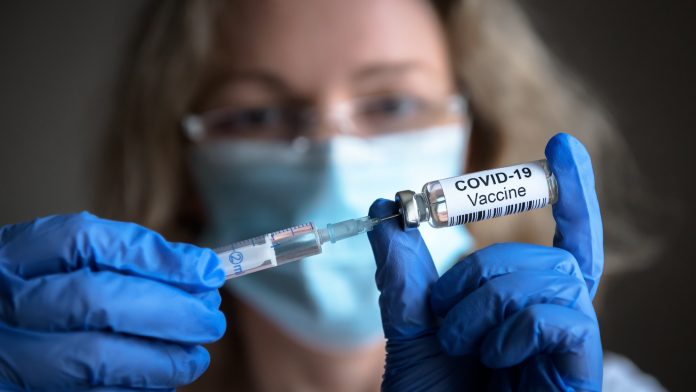Following an announcement from biotechnology company Moderna released overnight, the Australian Government has confirmed it has secured 25 million doses of Moderna’s mRNA vaccine against Covid-19.
Reportedly, 10 million doses of Moderna’s vaccine are set to be delivered to Australia in the latter part of 2021, with 15 million doses of the updated variant booster vaccine candidate expected to be delivered in 2022, subject to approval by the Therapeutic Goods Administration (TGA).
“They serve two purposes,” said The Hon Greg Hunt MP, Minister for Health and Aged Care, at a press conference.
“Firstly, as a reserve supply for this year if other elements of the supply chain would run into any challenges.
“Secondly, they are our foundation of booster and variant strategy. Moderna is, on the advice we have, the most advanced of the vaccine products with relation to the capacity to adapt to booster or variant requirements.”
Reportedly, the Government also remains in discussions with Moderna in relation to establishing a manufacturing facility in Australia for mRNA vaccines.
“We appreciate the partnership and support from the government of Australia with this first supply agreement for doses of the Moderna Covid-19 vaccine and our variant booster candidates,” says Chief Executive Officer of Moderna, Stephane Bancel.
“As we seen to protect people around the world with our Covid-19 vaccine and potentially our variant booster candidates, we look forward to continuing discussions with Australia about establishing potential local manufacturing opportunities.”
‘Welcome news’
Dr Roger Lord, Senior Lecturer (Medical Sciences) at the Australian Catholic University and a Specialist Advisor to the TGA in the fields of Transplantation, Infectious Disease and Clinical Biochemistry says the announcement “is welcome news”.
“The agreement includes 10 million doses of the mRNA-1273 vaccine that is currently in Phase 2 clinical trials and reportedly produces antibody responses against two Covid-19 variants of concern, B.1.351 (South Africa) and P.1 (Brazil),” he says.
“The data for this trial has not yet been peer-reviewed but offers promise that the transmission of more virulent strains of the virus can be controlled effectively.”
Dr Lord cautions that bringing in this additional vaccine option “may however have an undesired effect of further stalling Australia’s current Covid-19 vaccine rollout with the appearance of better protection compared to vaccines currently on offer”.
“Australians may become confused as to whether it is better to wait for a more effective vaccine or accept what is being offered now,” he warns.
Agreement is ‘forward-looking’
Professor Bruce Thompson, Dean and Professor School of Health Sciences at Swinburne University of Technology, welcomes the agreement with Moderna, saying that it “not only ensures current supply, but it is also forward-looking by providing vaccines for the variants that are now appearing, for which existing vaccines don’t work as well”.
“This is smart!” says Professor Thompson. “But it also clearly highlights that the pandemic is going to be with us for some time, and the need to have rapid testing, better treatments, and stay ahead of the curve in regard to vaccination is crucial in managing Covid-19.”
‘Critical supply chain and uptake implications’
Speaking about the Moderna vaccine deal, Dr Elizabeth Jackson, Senior Lecturer in Supply Chain Management and Logistics at Curtin University, says that “this third offering (in addition to that of Pfizer and AstraZeneca) has critical supply chain and community uptake implications”.
“Any medication is only effective once it has been taken by the patient in the right dose and at the right time,” says Dr Jackson.
“This can only be achieved with effective procurement, distribution, storage and administration processes in place.”
Dr Jackson adds that while the “government’s purchase agreement is indeed good news”, it’s subject to the “regulatory approval by the TGA”. “Given the challenges of the past year, it’s difficult to know whether to be excited or not,” she says.
More to come as the news unfolds.











